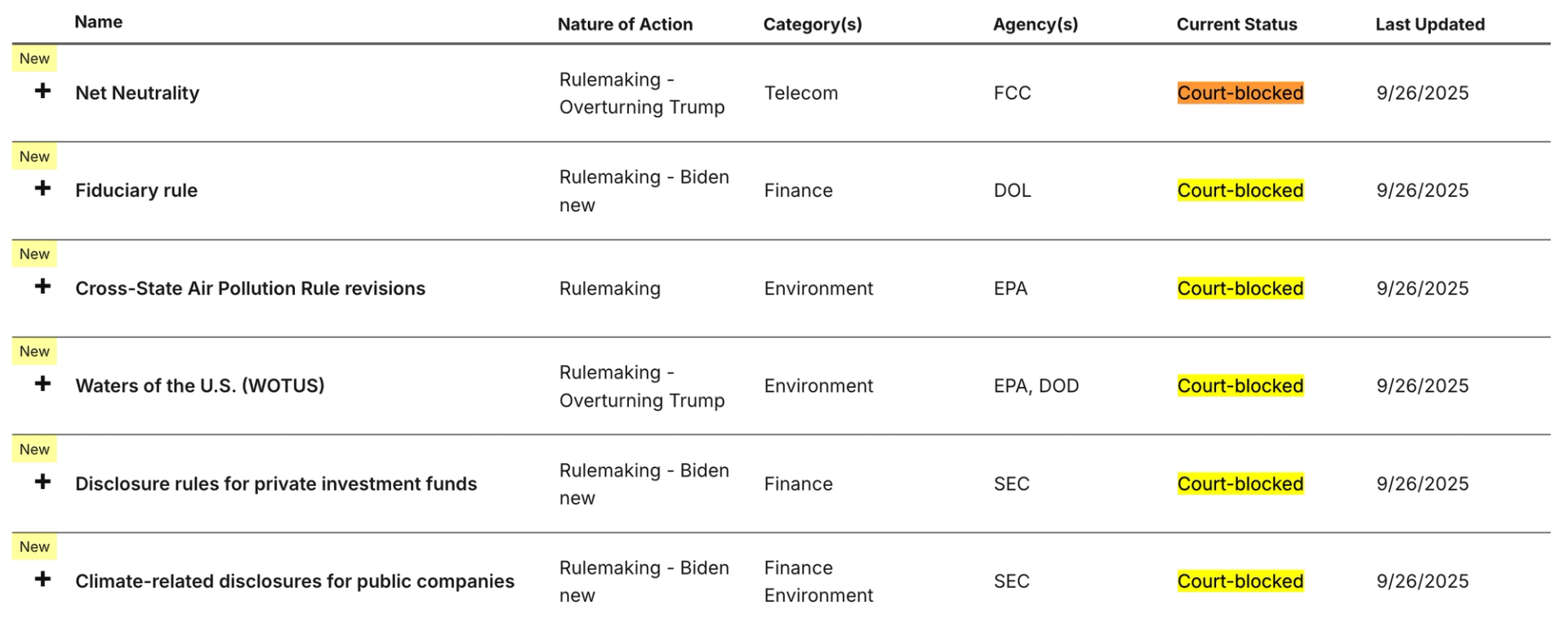Liz’s view
A remarkable exchange took place in the Oval Office on Tuesday. “I’m surprised you’re agreeing to this,” President Donald Trump said to Pfizer CEO Albert Bourla, who posed in front of the president’s smiling medical advisors and agreed to give up billions of dollars in profit margin. “I’m getting better,” responded Bourla.
Companies once relied on well-funded lobbying groups to fight their battles and availed themselves of the revolving door. (Pfizer added Trump’s first-term FDA chief, Scott Gottlieb, to its board in 2019.) But the old playbook — drag your feet, lawyer up, wait for the enforcement action that may never come, and sue if you must — has been replaced by something weirder. Companies are policing themselves into pretzel knots before lettered agencies pick up their fine-print pen.
Traditional regulation is coercive but predictable. Companies know the rules of the road and test them when they dare. That’s been replaced by a regime that is in theory voluntary but fickle. It’s less open to negotiation than Trump’s first term “bid-ask” approach to regulation, which many CEOs actually came to like, but more open than Biden’s, which had almost no give and take. Pick your poison.
When Bourla professed his self-improvement to Trump, he was acknowledging a new reality. And he got what he came for: Pfizer added $6 billion in market value by the time the president said, “he’s doing the right thing.”
In this article:
Room for Disagreement
For all their talk of long-termism, America’s CEOs are being remarkably short-sighted in their embrace of Trump, Chatham House argues. “Instead of fighting to safeguard the structural bedrock of their success, most are sidestepping their responsibility.”
Notable
- The Pfizer deal is “a real wake-up call to those who thought the administration wasn’t serious,” the right-leaning American Action Forum’s Douglas Holtz-Eakin writes.
- This image, from Brookings Institution’s regulation tracker, shows the court-imposed limits of Trump’s stabs at traditional rule-writing. His success rate on Oval Office displays is far higher.


